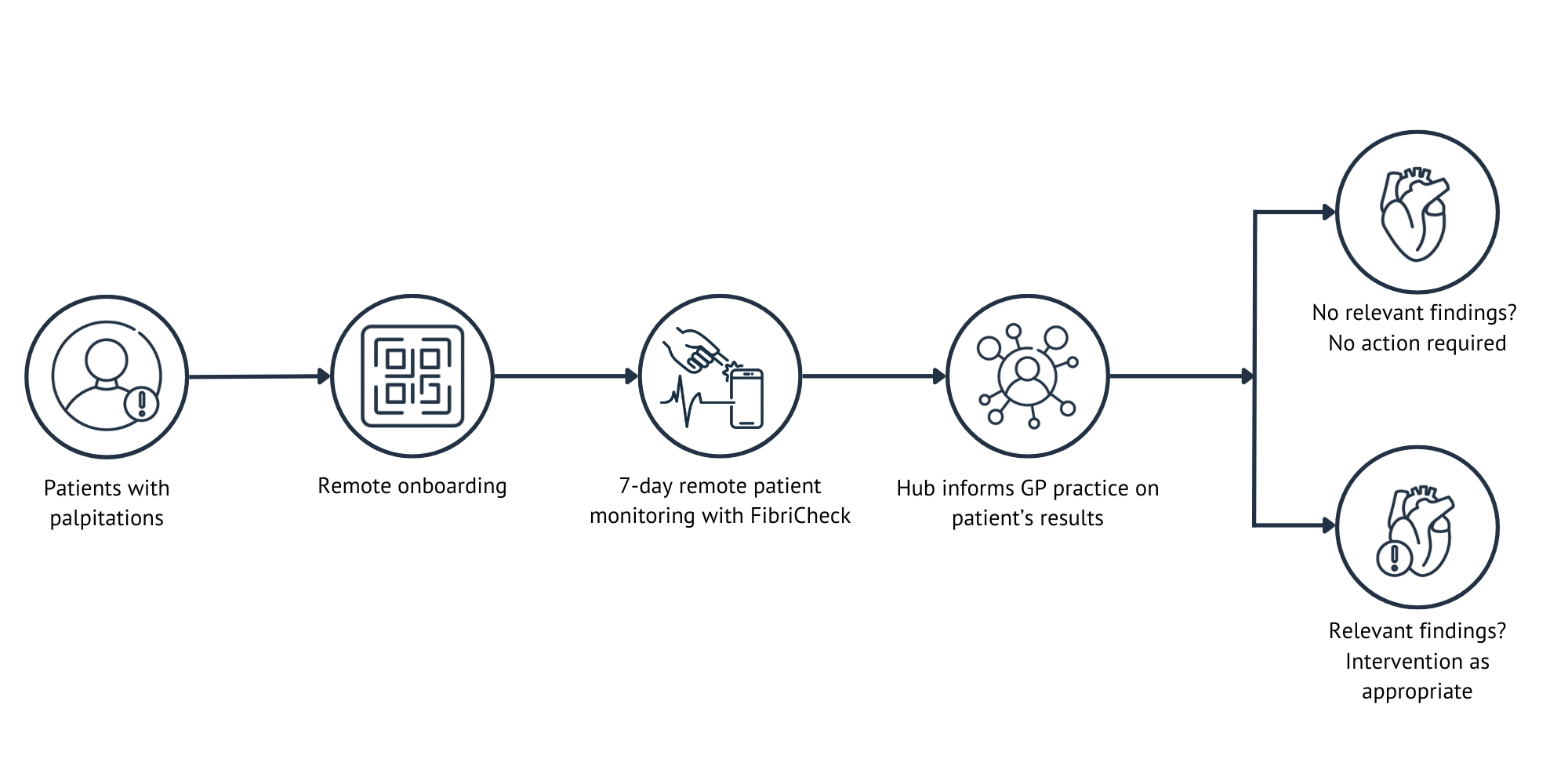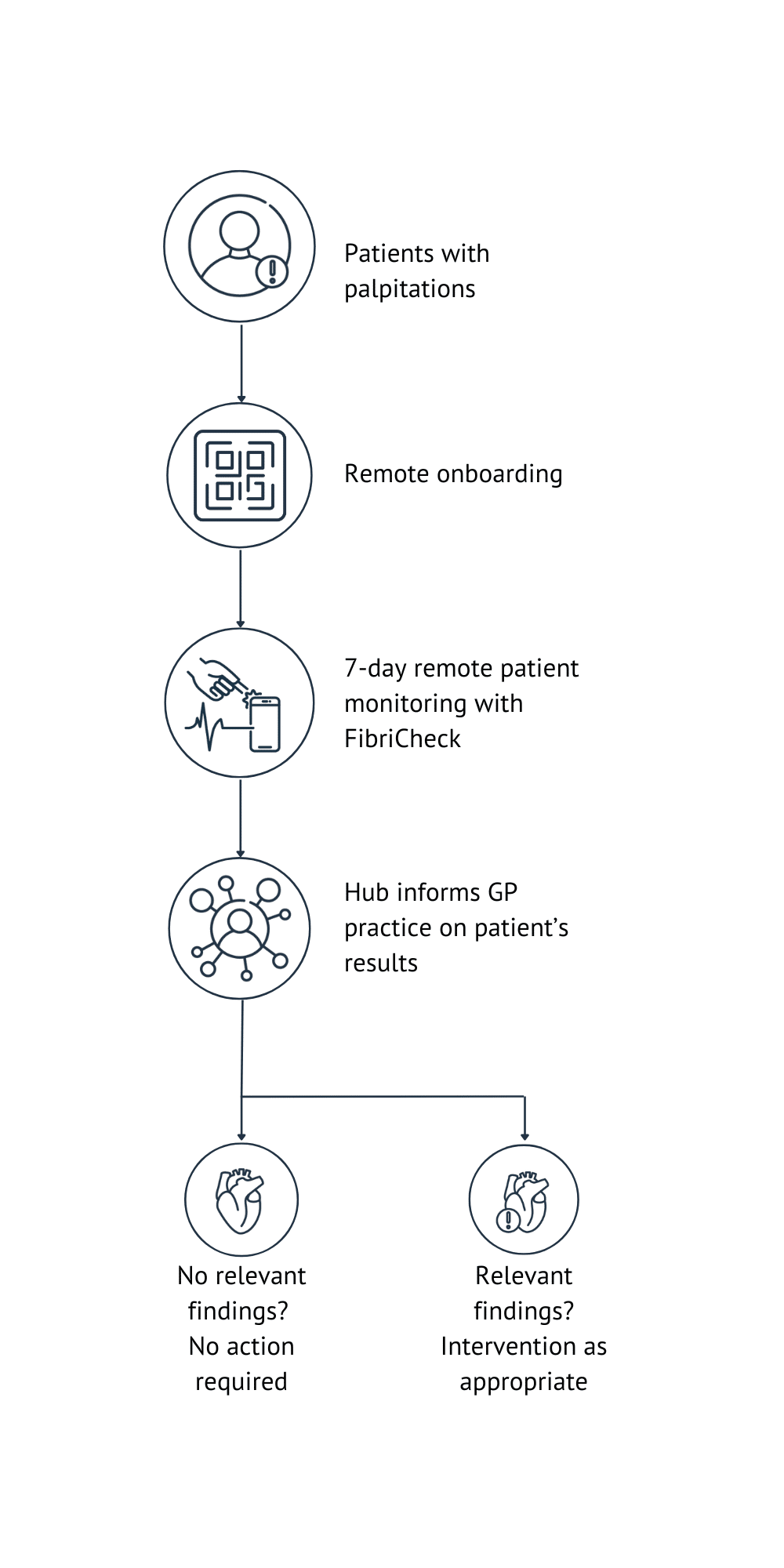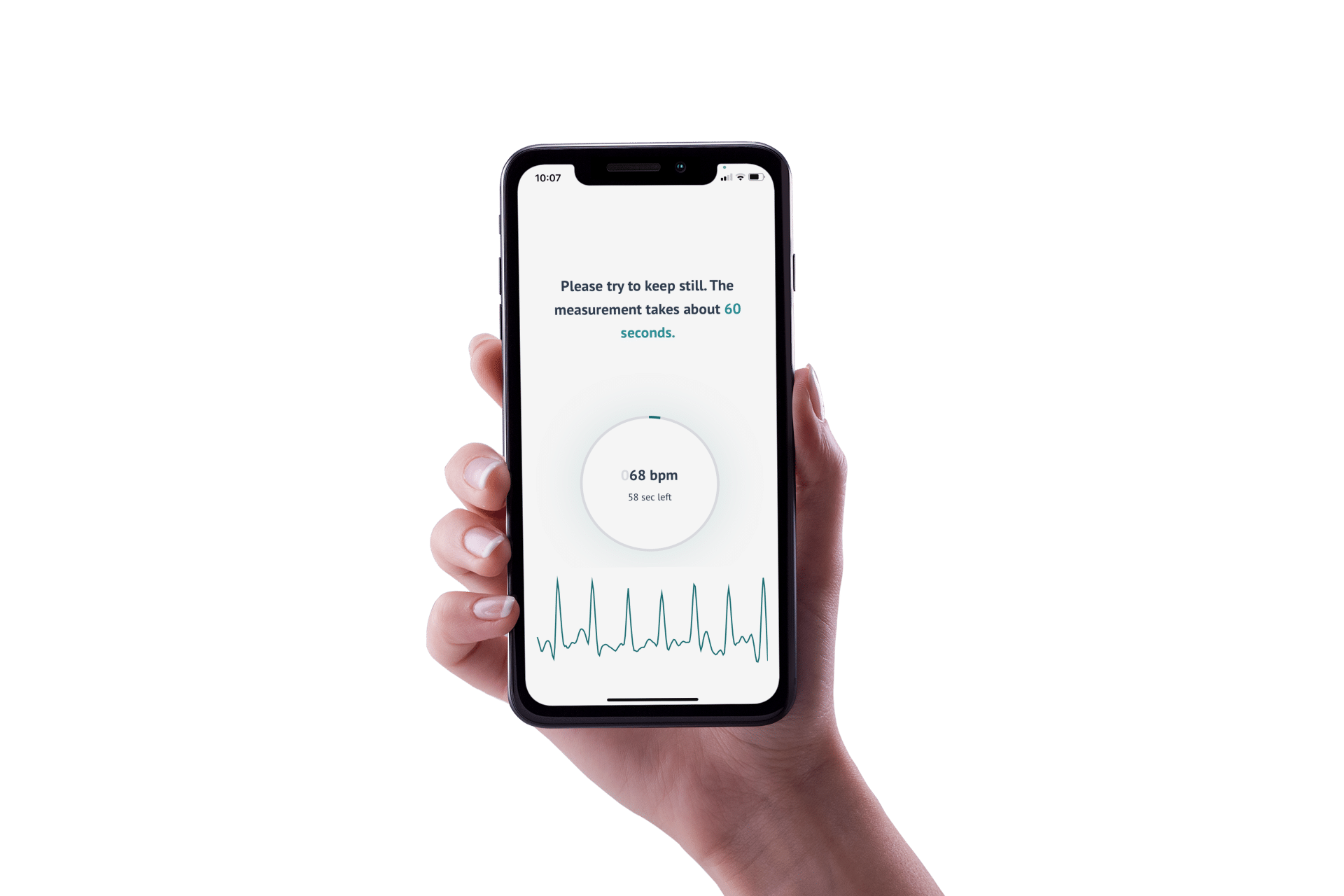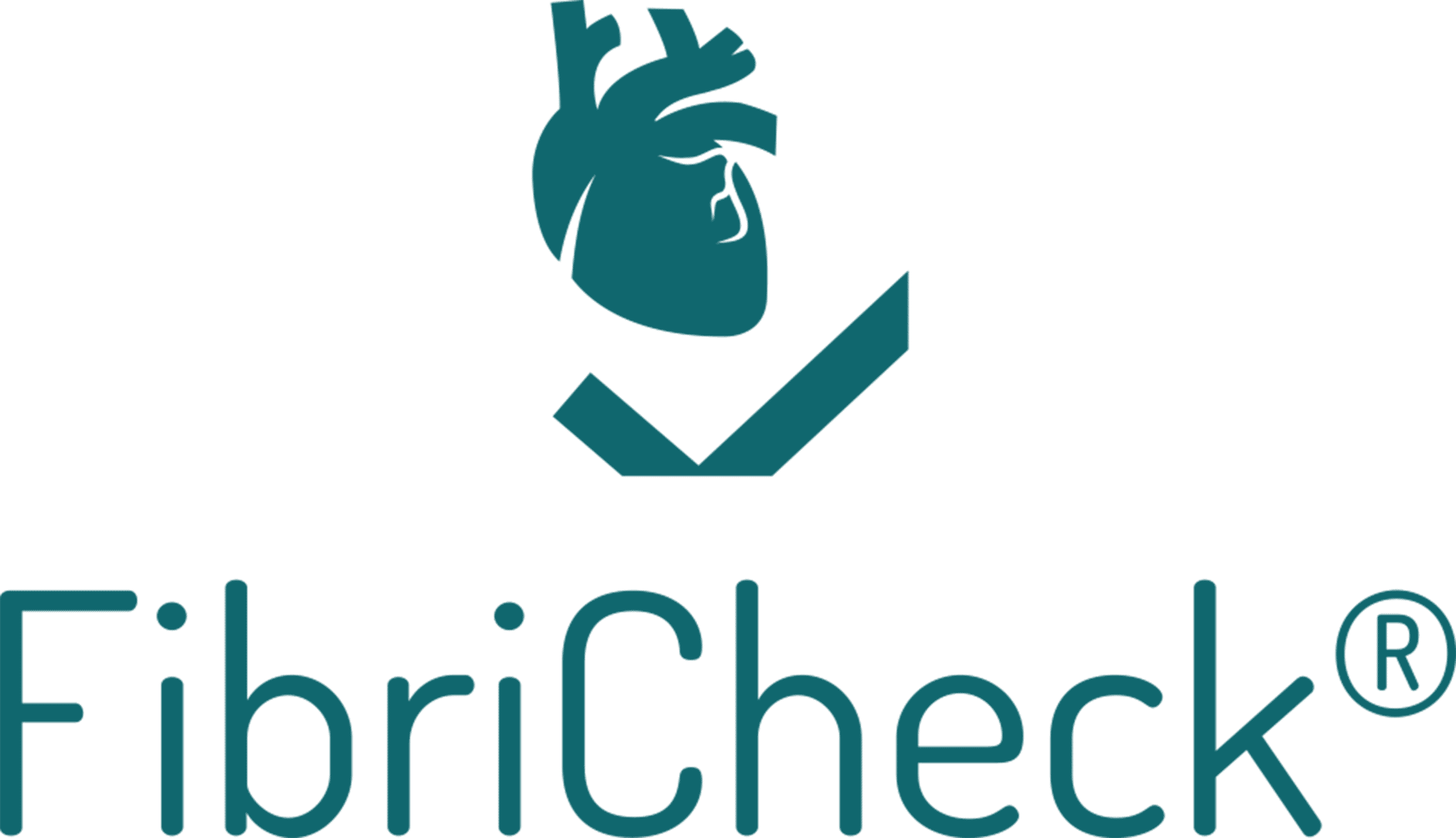
Key benefits
Decreased wait times for appointments
Improved resource management in care
Cost reductions
Improved health outcomes

Key benefits
Decreased wait times for appointments
Improved resource management in care
Cost reductions
Improved health outcomes
How does it work?
Project outline: Staffordshire and Stoke-on-Trent GPs are using FibriCheck to remotely monitor patients with palpitations. This region-wide initiative, involving 146 GP practices, aims to reduce unnecessary appointments and diagnostic referrals, improving resource management and wait times for patients. With FibriCheck, patients can now check their heart rhythm whenever they want and whenever experiencing symptoms. As palpitations often only appear sporadically, remote heart rhythm monitoring over a longer period of time can enable timely triage and reduce repeat visits. This approach is expected to enhance health outcomes and bring significant savings to the NHS, while also aiding in the detection of atrial fibrillation and supporting annual primary care health checks.
In collaboration with

Related resources
Reviews from professionals
“This is amazing for patient care and a massive cost saving to the system as these people could have had a stroke or heart attack in the future. These are less potentially disabled individuals, who would not have been able to live healthier lives, be in work, and required care. Fibricheck has allowed us to be more responsive to patient care needs and helped with capacity in frontline general practice.”
Regional clinical director Dr Jack Aw, a senior GP partner of the Loomer Medical Group (the leading practice whose results launched this work to regional scale), and clinical advisor of this pathway
Contact us today
And learn how we can enhance your healthcare outcomes

Other implementations
Post ablation, Essex Cardiothoracic Centre
FibriCheck-enabled, digital pathway effectively replacing Holters and 12-lead ECG examinations Remote insights into heart rate, rhythm, and symptoms efficiently detected…
Post stroke monitoring, Barking, Havering and Redbridge University Hospitals
Enhanced care results Reduced waiting times for Holters Improved detection yield in cryptogenic stroke patients
Remote atrial fibrillation monitoring before consultation proves significant time and cost savings
Reduced costs Increased efficiency Time savings for patients and clinics Reliable real-time data for clinical decision-making Enhanced patient safety and…




